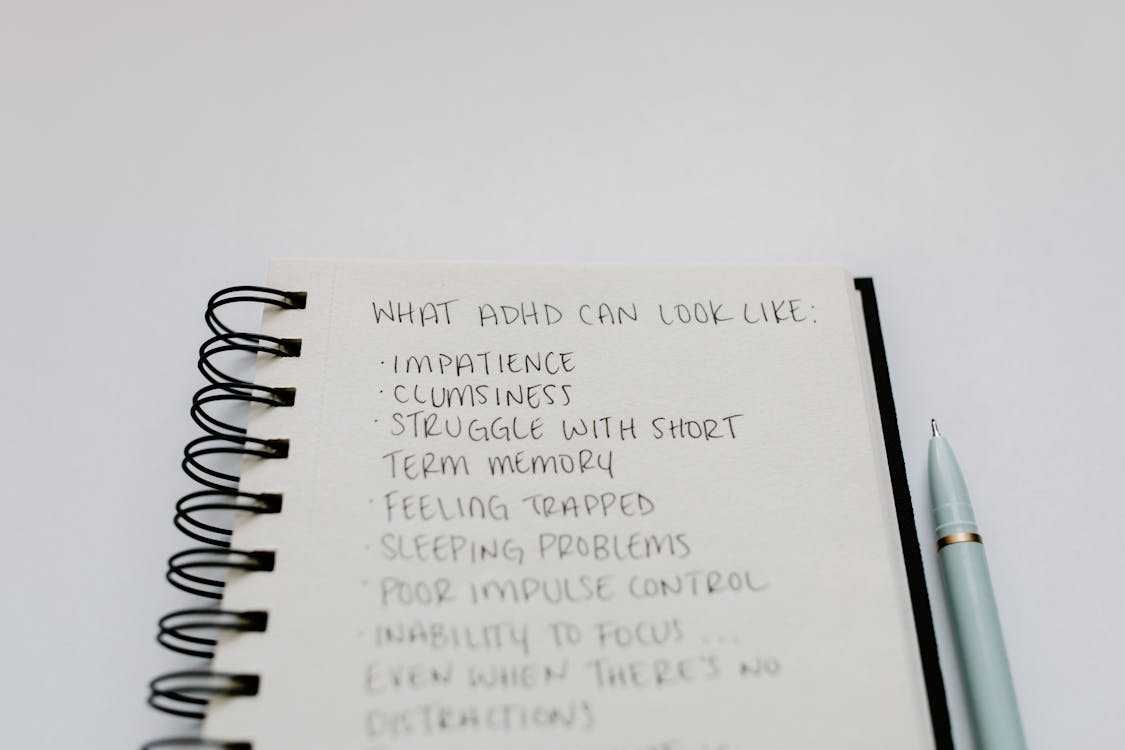
Social anxiety and ADHD symptoms can often go hand-in-hand. Although these conditions can co-exist, it’s important and helpful to understand each of them better so that you can develop appropriate treatments and coping mechanisms.
Social Anxiety Disorder (SAD)

Social anxiety disorder (SAD), also referred to as social phobia, is a condition in which common social situations and interactions can cause people to feel significant stress, fear, and anxiety.
It’s true that how comfortable a person feels in certain social situations can vary, and at any point, people can feel uncertain or nervous about a particular event like a meeting, presentation, or even a date. However, it’s when that feeling builds up into anxiety and fear, moving onto complete avoidance of social situations that it interferes with a daily routine that it becomes a problem.
The more you understand social anxiety, the sooner you can begin learning how to manage what can be a chronic mental health condition.
Separating “Introvert” from Social Anxiety
Before we get anywhere with social anxiety symptoms and treatment options, it’s important to understand that SAD is not a personality trait. Things like being an introvert or being shy are considered personality characteristics. Meanwhile, social anxiety is a behavior disorder.
Those who are introverted tend to enjoy spending time alone away from others and social situations. They can feel physically and mentally drained after spending too much time interacting with others, especially large gatherings.
Naturally, there can be some feelings of anxiety within those who are introverts. However, that doesn’t mean they have SAD. Those with SAD can be introverts or extroverts as it is a behavioral condition that causes unexplained fears that makes them hesitate to go out in public or speak in public.
It is vital to understand that there is a difference as people often confuse those who are introverts to those who have a serious health condition and need help. Meanwhile, introverts don’t necessarily require any help as there’s nothing inherently in need of being managed.
Social Anxiety Symptoms
The symptoms of social anxiety may confuse some people initially as they seem like something most have experienced at some point or another in life. Even so, these symptoms are more constant and can interfere with your daily life.
Some of the emotional symptoms include:
- Intense fear of social interacting/speaking with strangers
- Fear of physical symptoms (e.g. blushing, stammering, sweating)
- Avoidance of social situations
- Intense worry about embarrassing yourself
- Highly self-conscious in front of other people
- Anxiety in anticipating future social situations
These can lead to more physical reactions that include:
- Nausea/upset stomach
- Sweating
- Rapid heart rate
- Rigid posture
- Feeling faint
- Trouble breathing
- Mind has “gone blank”
- Blushing
With these symptoms, it may be hard to go through normal social situations. This doesn’t just include things like going to a party. Rather, it can make it difficult simply going out to the store, to a doctor’s office, using a public restroom, going to work or school, or eating out at a restaurant.
Social Anxiety Treatment Options
Since this condition can get in the way of your daily life, there are social anxiety treatment options that are helpful to explore so that you can see improvements in your health and life.
For starters, treatment will vary based on the severity of your condition and your symptoms. In general though, there are options that include medications, therapy, and general coping skills.
Medications
There are certain medications that can be prescribed based on your specific symptoms. Antidepressants like selective serotonin reuptake inhibitors (SSRIs) are commonly given out as they are known to cause fewer side effects.
Some beta blockers may also be used to manage physical symptoms that include tremors or a rapid heartbeat.
In the case of anxiety alone, benzodiazepines are a general go-to class of medications to manage those symptoms.
Therapy
Sometimes a doctor may recommend psychotherapy, otherwise known as talk therapy, with or without taking medication. There are various types of psychotherapy too such as cognitive behavioral therapy (CBT) that will help you better identify the problem and work on improving thought and behavior patterns.
It may seem difficult at first to approach any type of therapy when you have social anxiety as your condition may get in the way of seeking treatment. However, there are ways you can get treatment in the comfort and safety of your own home thanks to online therapy or even chat therapy over the phone to start with.
Coping Skills
With the treatment laid out before you, you can begin working on some coping skills that can lead to you improving your overall life and relationships with others.
You can practice mindfulness and deep breathing techniques. These can help you alleviate the physical symptoms of anxiety whenever you are out in public or about to go out. Lowering how anxious you feel can potentially help you get through the situation better.
Another rewarding coping option is exercise. You don’t have to do anything intense if you don’t want to, but exercise is a nice way to connect more with your body and feel better, boosting your mood and your confidence.
Social Anxiety and ADHD

For those of you who have ADHD, you probably wonder if there’s any connection with social anxiety. Many people that have ADHD whether adults or children can also be diagnosed with another behavioral disorder such as social anxiety.
The issue is, however, that the symptoms of social anxiety and ADHD can often overlap with one another. ADHD in particular can overpower signs of social anxiety, and thus allow social anxiety to go undetected.
It’s helpful to fully understand ADHD signs so that you can better determine if you are also suffering from social anxiety. From there, you can receive a proper diagnosis from a doctor.
Symptoms of ADHD
Even though some social anxiety and ADHD signs can seem the same, there are some specific symptoms to look out for on the ADHD side of the spectrum:
- Fidgeting, restlessness
- Impulsive behavior
- Daydreaming often
- Issues prioritizing
- Frequent mood swings
- Hot temper
- Stress
- Focusing problems
ADHD Treatment Options
Treatment for ADHD can be similar in adults and children. There are medications based on severity of symptoms and in case there are any other conditions along with the ADHD. There are even various therapy options that people can complete either while taking medications or without being prescribed anything.
In many cases, the treatment for social anxiety can help some of the ADHD symptoms. Medications, for instance, that manage anxiety can help those with ADHD perhaps feel calmer and less restless, alleviating fidgeting symptoms.
Myths and Facts About Social Anxiety Disorder
Many people have some trouble understanding social anxiety due to the myths that surround it. With all that’s been said, let’s break down a few of these myths so that we can better separate fact from fiction.
Myth: Social anxiety only impacts public speaking situations
Social anxiety is not something that only strikes when you’re going to speak in public. It’s common for many people that don’t have social anxiety to feel nervous about a public presentation in adulthood and childhood.
Although social anxiety can disrupt a public speaking situation, it goes further than that. It can impact all areas of interaction from hanging out with friends to expressing disagreement with others.
Myth: Social anxiety is uncommon
On the contrary, social anxiety is a common condition. Many people experience symptoms of social anxiety starting in childhood or their early teenage years.
Roughly 7% of adults in America alone have reported having social anxiety. In some cases, it may go undiagnosed if the symptoms are overshadowed by another condition such as ADHD.
Myth: Social anxiety is just another word for shyness
Social anxiety cannot be explained away as shyness. Shyness is a personality trait that many people can have and even outgrow. With social anxiety, it is not so simple as outgrowing it as it is true, unrelenting fear and anxiety about interacting with others whether you know them or not.
Takeaway
Social anxiety can be a serious behavioral condition that can interfere with your daily life, and social anxiety and ADHD can often blend due to some similar symptoms. It’s important to understand both of the conditions as you can be sure you have one of them or both of them.
In the event you are diagnosed with both, there are medications and treatment options that can successfully help you manage and cope with the pair.
Sources
- 8 signs you might be an introvert. (n.d.). Verywell Mind. [online, retrieved March 9, 2022]
- Adult attention-deficit/hyperactivity disorder (ADHD) – Symptoms and causes. (2019, June 22). Mayo Clinic. [online, retrieved March 9, 2022]
- The most commonly prescribed type of antidepressant. (2019, September 17). Mayo Clinic. [online, retrieved March 9, 2022]
- Social anxiety disorder (social phobia) – Symptoms and causes. (2021, June 19). Mayo Clinic. [online, retrieved March 9, 2022]
- Social anxiety disorder. (n.d.). Mental Health America. [online, retrieved March 9, 2022]
- What is ADHD? (2021, January 26). Centers for Disease Control and Prevention. [online, retrieved March 9, 2022]
- What is psychotherapy? (n.d.). Home │ psychiatry.org. [online, retrieved March 9, 2022]
- What you should know about beta blockers. (2019, August 16). Mayo Clinic. [online, retrieved March 9, 2022]







